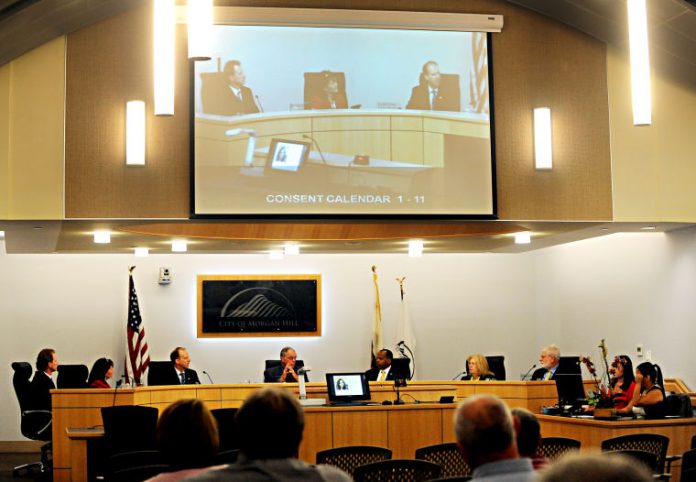For the first time in Morgan Hill history, the City Council is expected to adopt a two-year operating and capital budget. The council has until June 30 to adopt the budget, as the next fiscal year begins July 1.
The city’s draft budget for for fiscal years 2016-17 and 2017-18, was initially presented to the council at the May 4 meeting. Councilmembers did not discuss the budget after city finance staff presented the highlights, but are likely to reserve their questions and suggestions for an all-day budget workshop scheduled for 9 a.m. May 20 at City Council chambers, 17555 Peak Ave.
The city budget as currently proposed is about $126.5 million for 2016-17, and about $125.9 million for 2017-18, according to city staff.
The general fund budget—which is financed by sales, property and hotel taxes and pays for basic city services—is proposed at $37.3 million for 2016-17 and $38.7 million for 2017-18. These figures are up from $34.7 million for the current fiscal year, which ends June 30.
The highest category of expenses in the general fund is public safety, which is typical for Morgan Hill and most cities its size or larger. This category includes police and fire/emergency medical services, and accounts for about 75 percent of general fund expenditures, according to city staff.
The general fund budget for 2016-17 also includes the addition of six new full-time staff positions. These are a public safety dispatch supervisor, Land Use Data Administrator, Accounting Manager, Public Works Inspector, Senior Project Manager and a Municipal Services Assistant.
Other funds in the operating budget—such as planning and community development—are funded by user fees, permit revenues and other “non-discretionary” sources.
While the elected city council has traditionally approved city budgets one year at a time in Morgan Hill, the body earlier this year voted to switch to a biennial budget process that is increasingly common in other cities. Mayor Steve Tate said this transition is easier on city staff, and therefore more efficient. It also makes sense because the city does an annual five-year budget forecast anyway, and this step of the process is often updated at least halfway through each year.
“We always find the first couple of years are pretty much right on” in those projections, Tate said. “So you have a good idea how the next year is going to go. Many other cities and companies have gone to two-year budget cycles for that reason.”
The two-year budget cycle includes a mid-year evaluation of expenditures and revenues the last quarter of the first year, so that city staff and the council can consider making adjustments to the second year of the biennial spending plan if necessary, according to city staff.
In addition to the May 20 budget workshop, the public will have at least two other chances to ask questions and provide input about the tax-funded budget. These include public hearings scheduled for 7 p.m. June 1 and June 15. Both meetings will take place at Council Chambers.








